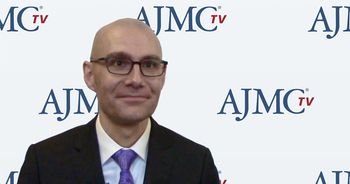
While not every doctor is successful in value-based contracts, there is a shift in the right direction to more value-based care, explained Scott Hewitt, vice president, payment strategy and innovation, UnitedHealthcare.

While not every doctor is successful in value-based contracts, there is a shift in the right direction to more value-based care, explained Scott Hewitt, vice president, payment strategy and innovation, UnitedHealthcare.
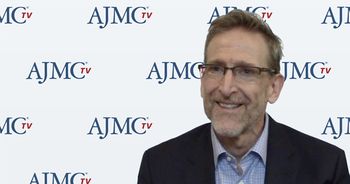
Compared with other payment models, like bundled payments or the Comprehensive Primary Care Program, accountable care organizations (ACOs) have done a better job of saving money, said Rob Mechanic, MBA, senior fellow at the Heller School of Social Policy and Management at Brandeis University and executive director of the Institute for Accountable Care.
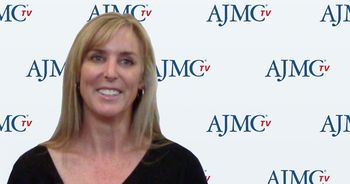
Medicare Advantage (MA) provides accountable care organizations (ACOs) with benefits that aren’t available in Medicare’s ACO program, explained Kim Kauffman, MPH, vice president of value-based care at Summit Medical Group.

There has been great engagement in accountable care organizations (ACOs) because ACOs offer a level of coordinated care that patients are looking for, explained Scott Hewitt, vice president, payment strategy and innovation, UnitedHealthcare.

The way accountable care organizations are set up makes them a perfect system of care for high-need, high-cost patients who might otherwise fall through the cracks of traditional delivery models, said Rob Mechanic, MBA, senior fellow at the Heller School of Social Policy and Management at Brandeis University and executive director of the Institute for Accountable Care.
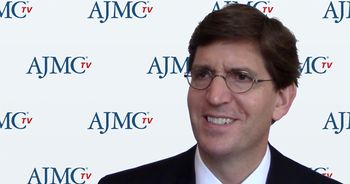
The proposed changes to the Medicare Shared Savings Program may put a damper on the accountable care organization (ACO) movement, but ACOs remain the government’s best option for controlling healthcare costs, said Stephen Nuckolls, CEO of Coastal Carolina Quality Care.
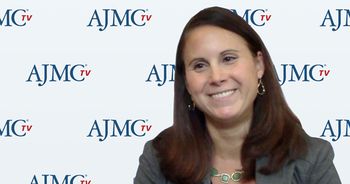
There are some proposed changes to the Medicare Shared Savings Program (MSSP) that may be favorably or not depending on the accountable care organization (ACO) and its situation, said Allison Brennan, MPP, senior vice president of government affairs for the National Association of ACOs.
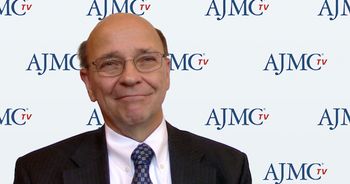
The way Washington, DC, works will make it difficult to enact any meaningful change that will cause a difference in how much patients pay for prescription drugs, said Joe Antos, PhD, the Wilson H. Taylor Resident Scholar in Health Care and Retirement Policy at the American Enterprise Institute.
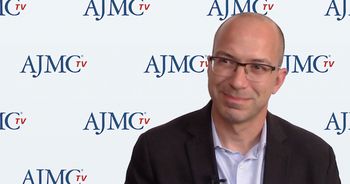
There remain issues with benchmarking, attribution, and risk adjustment that CMS needs to address with accountable care organizations (ACOs), said Rob Fields, MD, assistant profession, family medicine and community health, Icahn School of Medicine at Mount Sinai, and senior vice president, chief medical officer, population health at Mount Sinai Health System.

The shorter timeline to risk and the reduction of shared savings rates are among the 2 greatest challenges accountable care organizations (ACOs) will face as part of the proposed changes to the Medicare Shared Savings Program (MSSP), said Allison Brennan, MPP, senior vice president of government affairs for the National Association of ACOs.

While the proposed changes to the Medicare Shared Savings Program (MSSP) won’t mean a large number of changes to Coastal Carolina Quality Care, the accountable care organization will have to make some changes to respond to the new Enhanced track, said Stephen Nuckolls, CEO of Coastal Carolina Quality Care.
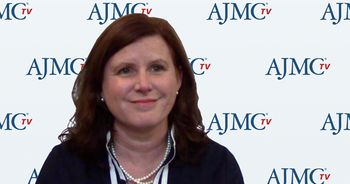
The proposed changes to the Medicare Shared Savings Program could prevent the program from driving broad change to value-based care across the country, according to Katherine Schneider, MD, MPhil, FAAFP, president and CEO of Delaware Valley ACO.

One of the big issues that policy makers need to pay more attention to is how to reform Medicare, which has about 10 years remaining until the baby boomers aging into the program now start to see increased medical costs and needs, said Joe Antos, PhD, the Wilson H. Taylor Resident Scholar in Health Care and Retirement Policy at the American Enterprise Institute.
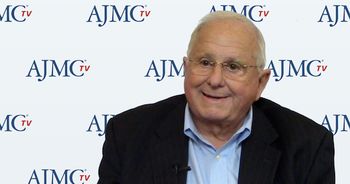
There are different ways to measure how Medicare Shared Savings Program (MSSP) accountable care organizations (ACOs) have saved money, and the way used can drastically affect the amount of savings reported, explained Clif Gaus, ScD, president and CEO of the National Association of ACOs.

Systems, groups, and practices that haven’t yet joined the accountable care organization (ACO) movement will find it harder to do so if the proposed changes to the Medicare Shared Savings Program (MSSP) take effect, said Rob Fields, MD, assistant profession, family medicine and community health, Icahn School of Medicine at Mount Sinai, and senior vice president, chief medical officer, population health at Mount Sinai Health System.

Some of the proposed changes to the Medicare Shared Savings Program align with things the National Association of ACOs had been asking for, said Allison Brennan, MPP, senior vice president of government affairs for the National Association of ACOs.

The proposed changes to the Medicare Shared Savings Program (MSSP) acknowledge the complexity of the program and bring more predictability and stability to MSSP, according to Katherine Schneider, MD, MPhil, FAAFP, president and CEO of Delaware Valley ACO.

The proposed risk adjustment changes to the Medicare Shared Savings Program (MSSP) are welcome but moving accountable care organizations (ACOs) to risk too soon could harm the program, said Stephen Nuckolls, CEO of Coastal Carolina Quality Care.

The push to get accountable care organizations to take on risk faster could lead to more participation in Medicare Advantage, said Rob Fields, MD, assistant profession, family medicine and community health, Icahn School of Medicine at Mount Sinai, and senior vice president, chief medical officer, population health at Mount Sinai Health System.

CMS’ proposed changes to the Medicare Shared Savings Program (MSSP) doesn’t represent a major shift in policy stance toward accountable care organizations (ACOs), said Joe Antos, PhD, the Wilson H. Taylor Resident Scholar in Health Care and Retirement Policy at the American Enterprise Institute.

By encouraging more providers to take on risk faster, the current administration may actually be disincentivizing providers from participating at all, which would reduce the number of accountable care organizations (ACOs), said Allison Brennan, MPP, senior vice president of government affairs for the National Association of ACOs.

Private payers are getting more engaged in accountable care organizations (ACOs), said Clif Gaus, ScD, president and CEO of the National Association of ACOs.

The proposed changes to the Medicare Shared Savings Program that move accountable care organizations (ACOs) to take on risk in just 2 years is not going to be enough time for most ACOs, although some may be ready in that time, said Stephen Nuckolls, CEO of Coastal Carolina Quality Care.

Contracts for accountable care organizations (ACOs) can be very different depending on who the payer is, according to Katherine Schneider, MD, MPhil, FAAFP, president and CEO of Delaware Valley ACO.

At the National Association of ACOs Fall 2018 conference, private payers discussed how they are working with accountable care organizations (ACOs) to create new opportunities in the commercial market.

During the opening plenary and panel at the fall 2018 meeting of the National Association of ACOs (NAACOS), Adam Boehler, of the Center for Medicare and Medicaid Innovation, highlighted the fact that CMS has to provide predictability and simplicity to get more accountable care organizations to take on risk and succeed, but that those who are not "cutting it" should "get out of the way" for others.

Rob Fields, MD, assistant profession, family medicine and community health, Icahn School of Medicine at Mount Sinai, and senior vice president, chief medical officer, population health at Mount Sinai Health System, discusses how Mount Sinai’s accountable care organizations (ACOs) will have to adjust to the proposed CMS Medicare Shared Savings Program (MSSP) changes.

Accountable care organizations (ACOs) are of 2 minds right now. On the one hand, there is a lot of excitement for the future of ACOs, but there is also great anxiety around the changes that CMS proposed for the Medicare Shared Savings Program (MSSP), said Clif Gaus, ScD, president and CEO of the National Association of ACOs (NAACOS).

Accountable care organizations (ACOs) often care for patients with complex, chronic conditions that can lead to high expenditures and utilization of care. During a session at the National Association of ACOs Fall 2018 conference, being held October 3-5 in Washington, DC, panelists discussed how ACOs can design and implement strategies that deliver high-quality, low-cost care for these patients.

At the National Association of ACOs Fall 2018 conference, being held October 3-5 in Washington, DC, panelists shared successful innovative initiatives that have been developed by their accountable care organizations (ACOs). What worked and what did not was the focus of the conversation led by Debbie Welle-Powell, chief population health officer, Essentia Health.

259 Prospect Plains Rd, Bldg H
Cranbury, NJ 08512
© 2025 MJH Life Sciences®
All rights reserved.
